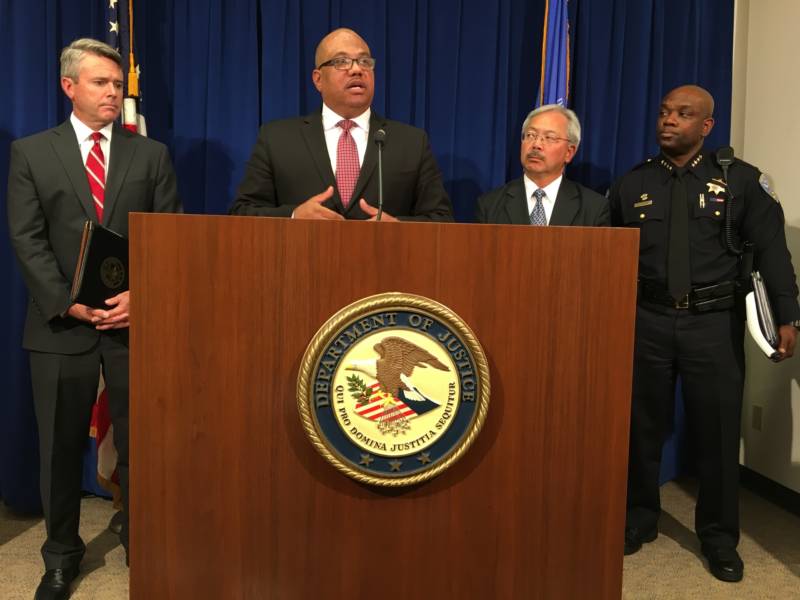"The agreement between the San Francisco Police Department and the Justice Department may be done away with, but the reforms and measures, we're committed to," Turman said in an interview Tuesday.
SFPD is in the midst of implementing 272 federal recommendations aimed at reducing bias, improving accountability and changing the culture of the department through revamped hiring and training.
The work is overseen by the Justice Department's Office of Community Oriented Policing Services, or COPS office.
That office unveiled a report in October following an eight-month review that found San Francisco's Police Department had "concerning deficiencies in every operational area assessed," including use of force, bias and community policing, among others.
The report came during the last months of the Obama administration, which in recent years aggressively pursued federal intervention into police departments with alleged patterns or practices of civil rights abuse.
President Trump's attorney general, Sessions, appears to be moving in a different direction.
"Local control and local accountability are necessary for effective local policing," Sessions wrote in his recent memo. "It is not the responsibility of the federal government to manage non-federal law enforcement agencies."
Observers say the move is a sign that Trump's Justice Department will scale back scrutiny of unconstitutional policing, excessive force and other misconduct allegations.
Sessions' memo is troubling, according to a former top DOJ official who expects the department to pull back from local police accountability work.
"The Department of Justice is retreating from its obligation to enforce the Constitution," said Jonathan Smith, the former head of the DOJ's Civil Rights Division, Special Litigation Section which conducts "pattern-or-practice" investigations and consent decrees.
"I think all the technical assistance and grant programs are on the table," said Smith, who is currently the executive director for the Washington Lawyers' Committee for Civil Rights and Urban Affairs.
"It does not bode well," Smith said.
Turman, though, says there is already strong local support for police reform in San Francisco.
“It is expected by the citizenry of San Francisco,” Turman said. “We are still going to push through with these measures, regardless.”
And the job is not done.
"In certain areas we still need to bring the work," Turman said.
New Police Chief William Scott is leading the effort. He brings experience enacting federally mandated police reform in Los Angeles.
"Mayor Ed Lee and San Francisco Police Chief William Scott remain fully committed to implementing all of the reforms outlined in the CRI report, regardless of any changes with the Department of Justice," SFPD spokesman Officer Robert Rueca said in an emailed statement.
Scott recently asked for -- and received -- an extra 90 days before a federal assessment of the Police Department's progress.
He took over the department in January, and said last month that the extra three months were needed because of the recent change in leadership.
Also in March, the Police Commission fired an officer in a bias-related case after Scott recommended he be let go. While details of the case are confidential, the San Francisco Examiner reported Monday that it involved alleged anti-Muslim texting by the officer.
In March 2015 the department was shaken by the release of a batch of racist, homophobic and sexist text messages traded by officers.
Later that year, five SFPD officers shot and killed Mario Woods, an African-American man holding a knife. The shooting was caught on video by several bystanders and elevated criticism of the Police Department. Shortly after, then-Police Chief Greg Suhr called for the federal review.
Suhr resigned last May after another police shooting that killed Jessica Williams, an African-American woman.

